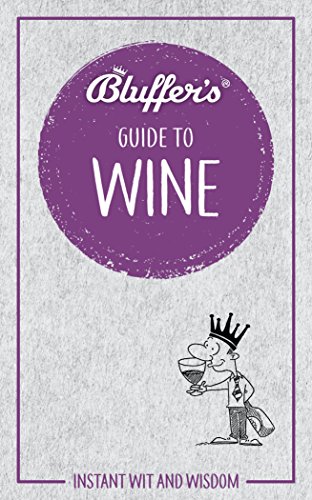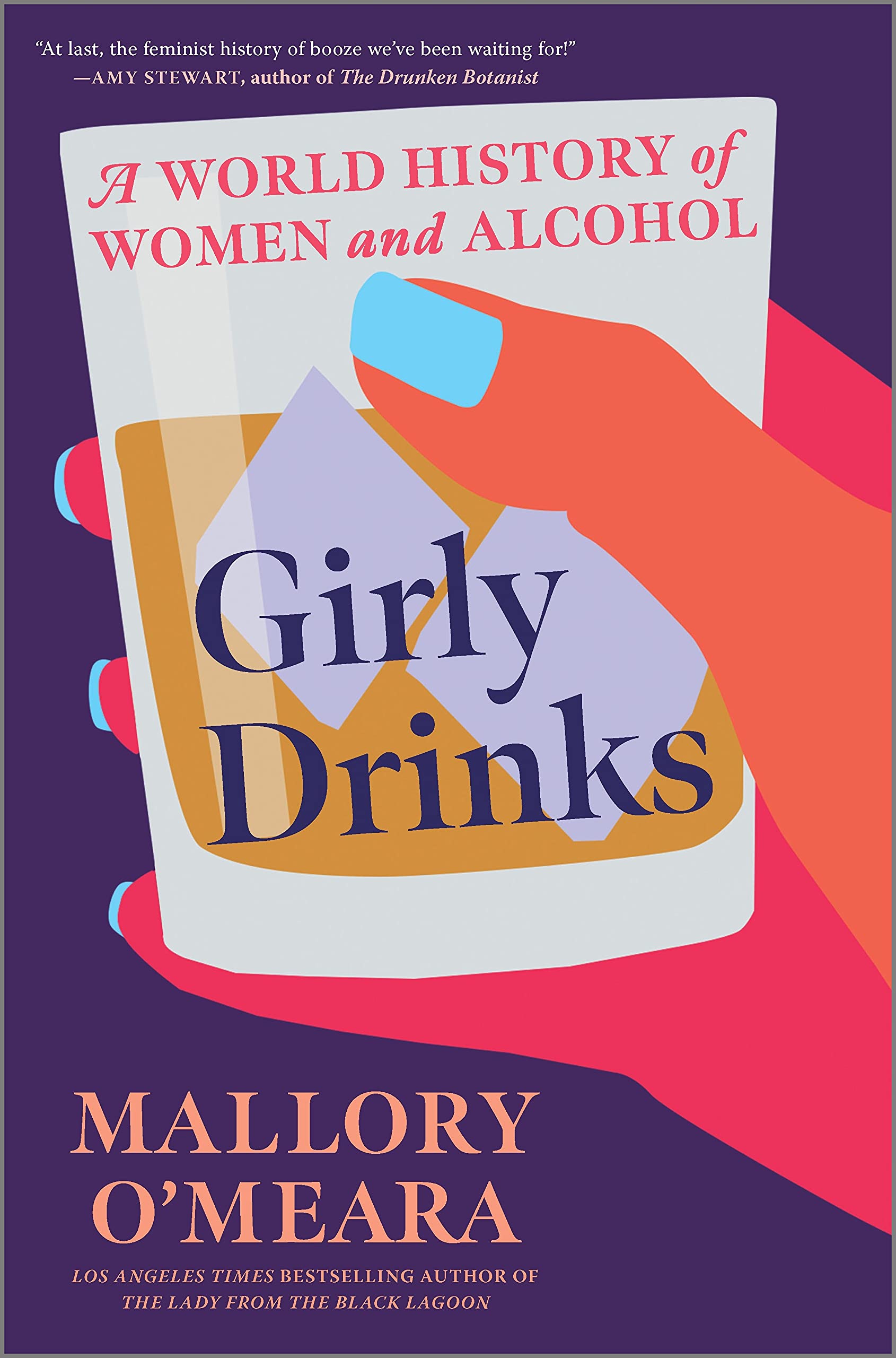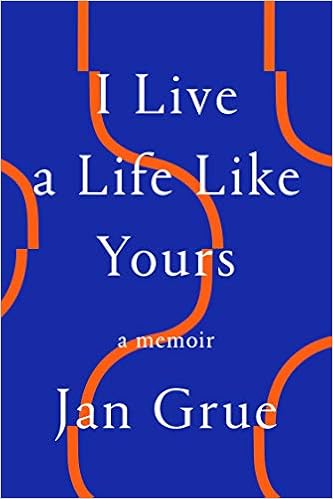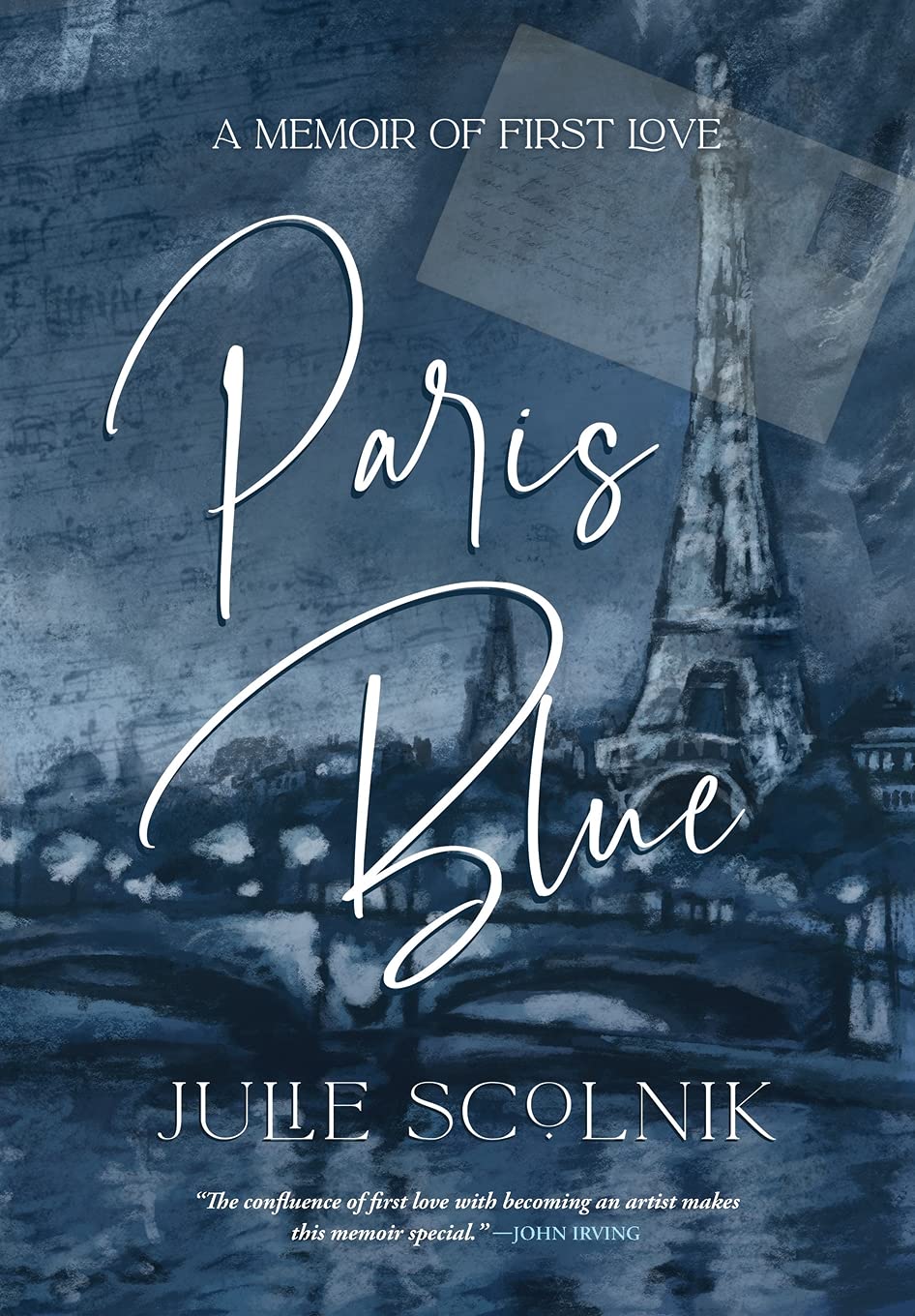

 Bluffer's Guide To Wine
by
Never again confuse your vintage with your viticulture, your ullage with your oenology, your sabrage with your cepage. Bask in the admiration of your fellow drinkers, pronounce confidently on the provenance of whatever is in your glass (or your mouth), and hold your own against the most sneering of sommeliers. Written by experts and offering readers the opportunity to pass off appropriated knowledge as their own, the Bluffer's Guides provide hard fact masquerading as frivolous observation in one witty, easy read.
Bluffer's Guide To Wine
by
Never again confuse your vintage with your viticulture, your ullage with your oenology, your sabrage with your cepage. Bask in the admiration of your fellow drinkers, pronounce confidently on the provenance of whatever is in your glass (or your mouth), and hold your own against the most sneering of sommeliers. Written by experts and offering readers the opportunity to pass off appropriated knowledge as their own, the Bluffer's Guides provide hard fact masquerading as frivolous observation in one witty, easy read.
 Girly Drinks
by
Strawberry daiquiris. Skinny martinis. Vodka sodas with lime. These are the cocktails that come in sleek-stemmed glasses, bright colors and fruity flavors—these are the Girly Drinks.
From the earliest days of civilization, alcohol has been at the center of social rituals and cultures worldwide. But when exactly did drinking become a gendered act? And why have bars long been considered “places for men” when, without women, they might not even exist?
With whip-smart insight and boundless curiosity, Girly Drinks unveils an entire untold history of the female distillers, drinkers and brewers who have played a vital role in the creation and consumption of alcohol, from ancient Sumerian beer goddess Ninkasi to iconic 1920s bartender Ada Coleman. Filling a crucial gap in culinary history, O’Meara dismantles the long-standing patriarchal traditions at the heart of these very drinking cultures, in the hope that readers everywhere can look to each celebrated woman in this book—and proudly have what she’s having.
Girly Drinks
by
Strawberry daiquiris. Skinny martinis. Vodka sodas with lime. These are the cocktails that come in sleek-stemmed glasses, bright colors and fruity flavors—these are the Girly Drinks.
From the earliest days of civilization, alcohol has been at the center of social rituals and cultures worldwide. But when exactly did drinking become a gendered act? And why have bars long been considered “places for men” when, without women, they might not even exist?
With whip-smart insight and boundless curiosity, Girly Drinks unveils an entire untold history of the female distillers, drinkers and brewers who have played a vital role in the creation and consumption of alcohol, from ancient Sumerian beer goddess Ninkasi to iconic 1920s bartender Ada Coleman. Filling a crucial gap in culinary history, O’Meara dismantles the long-standing patriarchal traditions at the heart of these very drinking cultures, in the hope that readers everywhere can look to each celebrated woman in this book—and proudly have what she’s having.
 I Live a Life Like Yours
by
I am not talking about surviving. I am not talking about becoming human, but about how I came to realize that I had always already been human. I am writing about all that I wanted to have, and how I got it. I am writing about what it cost, and how I was able to afford it.
Jan Grue was diagnosed with spinal muscular atrophy at the age of three. Shifting between specific periods of his life―his youth with his parents and sister in Norway; his years of study in Berkeley, St. Petersburg, and Amsterdam; and his current life as a professor, husband, and father―he intersperses these histories with elegant, astonishingly wise reflections on the world, social structures, disability, loss, relationships, and the body: in short, on what it means to be human. Along the way, Grue moves effortlessly between his own story and those of others, incorporating reflections on philosophy, film, art, and the work of writers from Joan Didion to Michael Foucault. He revives the cold, clinical language of his childhood, drawing from a stack of medical records that first forced the boy who thought of himself as “just Jan” to perceive that his body, and therefore his self, was defined by its defects.
I Live a Life Like Yours is a love story. It is rich with loss, sorrow, and joy, and with the details of one life: a girlfriend pushing Grue through the airport and forgetting him next to the baggage claim; schoolmates forming a chain behind his wheelchair on the ice one winter day; his parents writing desperate letters in search of proper treatment for their son; his own young son climbing into his lap as he sits in his wheelchair, only to leap down and run away too quickly to catch. It is a story about accepting one’s own body and limitations, and learning to love life as it is while remaining open to hope and discovery.
I Live a Life Like Yours
by
I am not talking about surviving. I am not talking about becoming human, but about how I came to realize that I had always already been human. I am writing about all that I wanted to have, and how I got it. I am writing about what it cost, and how I was able to afford it.
Jan Grue was diagnosed with spinal muscular atrophy at the age of three. Shifting between specific periods of his life―his youth with his parents and sister in Norway; his years of study in Berkeley, St. Petersburg, and Amsterdam; and his current life as a professor, husband, and father―he intersperses these histories with elegant, astonishingly wise reflections on the world, social structures, disability, loss, relationships, and the body: in short, on what it means to be human. Along the way, Grue moves effortlessly between his own story and those of others, incorporating reflections on philosophy, film, art, and the work of writers from Joan Didion to Michael Foucault. He revives the cold, clinical language of his childhood, drawing from a stack of medical records that first forced the boy who thought of himself as “just Jan” to perceive that his body, and therefore his self, was defined by its defects.
I Live a Life Like Yours is a love story. It is rich with loss, sorrow, and joy, and with the details of one life: a girlfriend pushing Grue through the airport and forgetting him next to the baggage claim; schoolmates forming a chain behind his wheelchair on the ice one winter day; his parents writing desperate letters in search of proper treatment for their son; his own young son climbing into his lap as he sits in his wheelchair, only to leap down and run away too quickly to catch. It is a story about accepting one’s own body and limitations, and learning to love life as it is while remaining open to hope and discovery.
 Paris Blue
by
PARIS, 1976: Twenty-year-old American student Julie Scolnik had just arrived in the City of Light to study the flute when, from across a sea of faces in the chorus of the Orchestre de Paris, she is drawn to Luc, a striking (married) French lawyer in the bass section. This moving tale of an ebullient young American and a reserved Frenchman will transport readers to the cafés, streets, and concert halls of Paris in the late seventies, and, spanning three decades, evolves from deep romance to sudden heartbreak, and finally to a lifelong quest for answers to release hidden, immutable grief. Against a magical backdrop of Paris and classical music, Paris Blue is true fairy-tale memoir (with a dark underbelly) about the tenacious grip of first love.
Paris Blue
by
PARIS, 1976: Twenty-year-old American student Julie Scolnik had just arrived in the City of Light to study the flute when, from across a sea of faces in the chorus of the Orchestre de Paris, she is drawn to Luc, a striking (married) French lawyer in the bass section. This moving tale of an ebullient young American and a reserved Frenchman will transport readers to the cafés, streets, and concert halls of Paris in the late seventies, and, spanning three decades, evolves from deep romance to sudden heartbreak, and finally to a lifelong quest for answers to release hidden, immutable grief. Against a magical backdrop of Paris and classical music, Paris Blue is true fairy-tale memoir (with a dark underbelly) about the tenacious grip of first love.
 Seven Kinds of People You Find in Bookshops
by
From behind the counter, Shaun Bythell catalogs the customers who roam his shop in Wigtown, Scotland. There’s the Expert (divided into subspecies from the Bore to the Helpful Person), the Young Family (ranging from the Exhausted to the Aspirational), Occultists (from Conspiracy Theorist to Craft Woman).
Then there's the Loiterer (including the Erotica Browser and the Self-Published Author), the Bearded Pensioner (including the Lyrca Clad), and the The Not-So-Silent Traveller (the Whistler, Sniffer, Hummer, Farter, and Tutter). Two bonus sections include Staff and, finally, Perfect Customer―all add up to one of the funniest book about books you’ll ever find.
Shaun Bythell (author of Confessions of a Bookseller) and his mordantly unique observational eye make this perfect for anyone who loves books and bookshops.
Seven Kinds of People You Find in Bookshops
by
From behind the counter, Shaun Bythell catalogs the customers who roam his shop in Wigtown, Scotland. There’s the Expert (divided into subspecies from the Bore to the Helpful Person), the Young Family (ranging from the Exhausted to the Aspirational), Occultists (from Conspiracy Theorist to Craft Woman).
Then there's the Loiterer (including the Erotica Browser and the Self-Published Author), the Bearded Pensioner (including the Lyrca Clad), and the The Not-So-Silent Traveller (the Whistler, Sniffer, Hummer, Farter, and Tutter). Two bonus sections include Staff and, finally, Perfect Customer―all add up to one of the funniest book about books you’ll ever find.
Shaun Bythell (author of Confessions of a Bookseller) and his mordantly unique observational eye make this perfect for anyone who loves books and bookshops.
 The Sleep Fix
by
From renowned ABC News anchor/correspondent and former insomniac Diane Macedo, comes a practical, user-friendly guide to getting better sleep. The Sleep Fix flips the switch on common advice, illuminating the reporter's relentless search for how to get a good night's sleep and the surprising, scientific, and practical solutions she found along the way. Roughly thirty percent of the population is estimated to be living with insomnia, while many more unknowingly suffer from other sleep disorders. In The Sleep Fix, Macedo aims to change that with perspective-shifting research and easy-to-implement solutions based not just on science and experts, but also her own years-long struggle. As an early-morning reporter and overnight news anchor, Macedo learned the hard way how valuable sleep is, and how it affects everything from our heart to our brain to our immune system. The longer Macedo struggled, the more her health deteriorated. Desperate, she tried standard sleep tip after standard sleep tip, but nothing worked - instead, it made her worse. Finally, after developing a tolerance to sleeping pills, Macedo decided to attack the problem as a journalist, interviewing sleep experts from all over the world to get to the bottom of what really keeps us from sleeping--and the various ways to fix it. As Macedo explains, the solution to catching zzz's isn't as simple as giving up caffeine, or putting away your phone before bed. With her down-to-earth explanations and humor, she instead teaches us how to: * Understand sleep biology * Identify sleep obstacles * Flag sleep myths and separate fact from fiction * Try counterintuitive approaches * Shift our mindset Most importantly, Macedo -- a busy, working mom -- teaches us how to adjust and fit these solutions into our everyday lives. Offering expert wisdom, cutting-edge research, intimate sleep stories from public figures, and actionable advice, The Sleep Fix is the tell-it-like-it-is guide this sleep-deprived world has been waiting for.
The Sleep Fix
by
From renowned ABC News anchor/correspondent and former insomniac Diane Macedo, comes a practical, user-friendly guide to getting better sleep. The Sleep Fix flips the switch on common advice, illuminating the reporter's relentless search for how to get a good night's sleep and the surprising, scientific, and practical solutions she found along the way. Roughly thirty percent of the population is estimated to be living with insomnia, while many more unknowingly suffer from other sleep disorders. In The Sleep Fix, Macedo aims to change that with perspective-shifting research and easy-to-implement solutions based not just on science and experts, but also her own years-long struggle. As an early-morning reporter and overnight news anchor, Macedo learned the hard way how valuable sleep is, and how it affects everything from our heart to our brain to our immune system. The longer Macedo struggled, the more her health deteriorated. Desperate, she tried standard sleep tip after standard sleep tip, but nothing worked - instead, it made her worse. Finally, after developing a tolerance to sleeping pills, Macedo decided to attack the problem as a journalist, interviewing sleep experts from all over the world to get to the bottom of what really keeps us from sleeping--and the various ways to fix it. As Macedo explains, the solution to catching zzz's isn't as simple as giving up caffeine, or putting away your phone before bed. With her down-to-earth explanations and humor, she instead teaches us how to: * Understand sleep biology * Identify sleep obstacles * Flag sleep myths and separate fact from fiction * Try counterintuitive approaches * Shift our mindset Most importantly, Macedo -- a busy, working mom -- teaches us how to adjust and fit these solutions into our everyday lives. Offering expert wisdom, cutting-edge research, intimate sleep stories from public figures, and actionable advice, The Sleep Fix is the tell-it-like-it-is guide this sleep-deprived world has been waiting for.
 Stupid Things I Won't Do When I Get Old
by
For fans of David Sedaris and Nora Ephron, here is a humorous, irreverent, and poignant look at the gifts, stereotypes, and inevitable challenges of aging, based on the wildly popular New York Times essay from award-winning journalist Steven Petrow.
Soon after his 50th birthday, Steven Petrow began assembling a list of “things I won’t do when I get old”—mostly a catalog of all the things he thought his then 70-something year old parents were doing wrong. That list, which included “You won’t have to shout at me that I’m deaf,” and “I won’t blame the family dog for my incontinence,” became the basis of this rousing collection of do’s and don’ts, wills and won’ts that is equal parts hilarious, honest, and practical.
The fact is, we don’t want to age the way previous generations did. “Old people” hoard. They bore relatives—and strangers—with tales of their aches and pains. They insist on driving long after they’ve become a danger to others (and themselves). They eat dinner at 4pm. They swear they don’t need a cane or walker (and guess what happens next). They never, ever apologize. But there is another way . . .
In Stupid Things I Won’t Do When I Get Old, Petrow candidly addresses the fears, frustrations, and stereotypes that accompany aging. He offers a blueprint for the new old age, and an understanding that aging and illness are not the same. As he writes, “I meant the list to serve as a pointed reminder—to me—to make different choices when I eventually cross the threshold to ‘old.’”
Getting older is a privilege. This essential guide reveals how to do it with grace, wisdom, humor, and hope. And without hoarding.
Stupid Things I Won't Do When I Get Old
by
For fans of David Sedaris and Nora Ephron, here is a humorous, irreverent, and poignant look at the gifts, stereotypes, and inevitable challenges of aging, based on the wildly popular New York Times essay from award-winning journalist Steven Petrow.
Soon after his 50th birthday, Steven Petrow began assembling a list of “things I won’t do when I get old”—mostly a catalog of all the things he thought his then 70-something year old parents were doing wrong. That list, which included “You won’t have to shout at me that I’m deaf,” and “I won’t blame the family dog for my incontinence,” became the basis of this rousing collection of do’s and don’ts, wills and won’ts that is equal parts hilarious, honest, and practical.
The fact is, we don’t want to age the way previous generations did. “Old people” hoard. They bore relatives—and strangers—with tales of their aches and pains. They insist on driving long after they’ve become a danger to others (and themselves). They eat dinner at 4pm. They swear they don’t need a cane or walker (and guess what happens next). They never, ever apologize. But there is another way . . .
In Stupid Things I Won’t Do When I Get Old, Petrow candidly addresses the fears, frustrations, and stereotypes that accompany aging. He offers a blueprint for the new old age, and an understanding that aging and illness are not the same. As he writes, “I meant the list to serve as a pointed reminder—to me—to make different choices when I eventually cross the threshold to ‘old.’”
Getting older is a privilege. This essential guide reveals how to do it with grace, wisdom, humor, and hope. And without hoarding.
 Tastes Like War: A Memoir
by
Grace M. Cho grew up as the daughter of a white American merchant marine and the Korean bar hostess he met abroad. They were one of few immigrants in a xenophobic small town during the Cold War, where identity was politicized by everyday details—language, cultural references, memories, and food. When Grace was fifteen, her dynamic mother experienced the onset of schizophrenia, a condition that would continue and evolve for the rest of her life.
Part food memoir, part sociological investigation, Tastes Like War is a hybrid text about a daughter’s search through intimate and global history for the roots of her mother’s schizophrenia. In her mother’s final years, Grace learned to cook dishes from her parent’s childhood in order to invite the past into the present, and to hold space for her mother’s multiple voices at the table. And through careful listening over these shared meals, Grace discovered not only the things that broke the brilliant, complicated woman who raised her—but also the things that kept her alive.
Tastes Like War: A Memoir
by
Grace M. Cho grew up as the daughter of a white American merchant marine and the Korean bar hostess he met abroad. They were one of few immigrants in a xenophobic small town during the Cold War, where identity was politicized by everyday details—language, cultural references, memories, and food. When Grace was fifteen, her dynamic mother experienced the onset of schizophrenia, a condition that would continue and evolve for the rest of her life.
Part food memoir, part sociological investigation, Tastes Like War is a hybrid text about a daughter’s search through intimate and global history for the roots of her mother’s schizophrenia. In her mother’s final years, Grace learned to cook dishes from her parent’s childhood in order to invite the past into the present, and to hold space for her mother’s multiple voices at the table. And through careful listening over these shared meals, Grace discovered not only the things that broke the brilliant, complicated woman who raised her—but also the things that kept her alive.
Don't miss next month's Nonfiction Book Chat Meeting!